Telecommunications in Sudan includes fixed and mobile telephones, the Internet, radio, and television. Approximately 12 million out of 45 million people in Sudan use the Internet, mainly on smartphones and mobile computers.

The East African Community (EAC) is an intergovernmental organisation composed of seven countries in the Great Lakes region of East Africa: the Democratic Republic of the Congo, the United Republic of Tanzania, the Republics of Kenya, Burundi, Rwanda, South Sudan, and Uganda. Évariste Ndayishimiye, the president of Burundi, is the current EAC chairman. The organisation was founded in 1967, collapsed in 1977, and was revived on 7 July 2000.

War Child International is a network of three independent non-governmental organisations: War Child UK, War Child Holland, and War Child Canada, each legally, operationally, and financially independent but sharing a common brand identity and mission to support children and young people affected by armed conflict and war. They work with parents, caregivers, community members, NGOs, governments, corporations, and other partners worldwide to ensure children have access to protection, education and psychosocial support. War Child has its work rooted in the United Nations Convention on the Rights of the Child.

Salva Kiir Mayardit, also known as Salva Kiir, is a South Sudanese politician who has been the President of South Sudan since its independence on 9 July 2011. Prior to independence, he was the President of the Government of Southern Sudan, as well as First Vice President of Sudan, from 2005 to 2011. He was named Commander-in-Chief of the Sudan People's Liberation Army (SPLA) in 2005, following the death of John Garang.
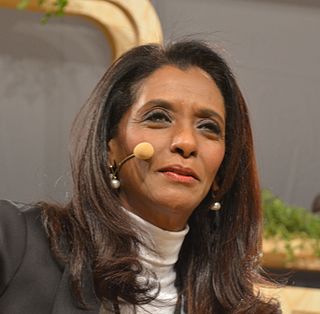
Zeinab Badawi is a Sudanese-British television and radio journalist. She was the first presenter of the ITV Morning News, and co-presented Channel 4 News with Jon Snow from 1989 to 1998), before joining BBC News. Badawi was the presenter of World News Today broadcast on both BBC Four and BBC World News, and Reporters, a weekly showcase of reports from the BBC.
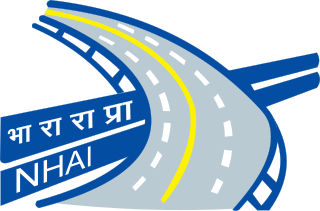
The National Highways Authority of India or NHAI is an autonomous agency of the Government of India, set up in 1995 and is responsible for management of a network of over 50,000 km of National Highways out of 1,32,499 km in India. It is a nodal agency of the Ministry of Road Transport and Highways. NHAI has signed a memorandum of understanding (MoU) with the Indian Space Research Organisation for satellite mapping of highways. Santosh Kumar Yadav is currently the chairperson of NHAI since December 2022. He is an IAS officer of Uttar Pradesh cadre and 1995 batch.
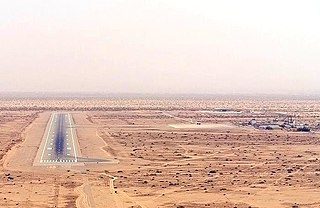
Port Sudan New International Airport is an airport serving Port Sudan, Sudan. Opened in 1992, it replaced the old old Port Sudan Airport. Located 20 kilometres (12 mi) south of the city, PZU is the second largest international airport in Sudan in terms of air traffic and international destinations served. Port Sudan New International Airport is a full member of the IATA as of 2014.
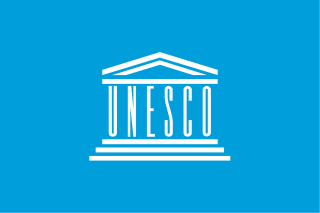
The United Nations Educational, Scientific and Cultural Organization is a specialized agency of the United Nations (UN) aimed at promoting world peace and security through international cooperation in education, arts, sciences and culture. It has 193 member states and 12 associate members, as well as partners in the non-governmental, intergovernmental and private sector. Headquartered in Paris, France, UNESCO has 53 regional field offices and 199 national commissions that facilitate its global mandate.

Zanele Muholi is a South African artist and visual activist working in photography, video, and installation. Muholi's work focuses on race, gender and sexuality with a body of work that dates back to the early 2000's, documenting and celebrating the lives of South Africa's Black lesbian, gay, transgender, and intersex communities. Muholi is non-binary and uses they/them pronouns, explaining that "I'm just human".

South Sudan, officially the Republic of South Sudan, is a landlocked country in Eastern Africa. It is bordered by Ethiopia, Sudan, the Central African Republic, the Democratic Republic of the Congo, Uganda, and Kenya. Its population was estimated at 10,913,164 in 2022. Juba is the capital and largest city.

Qatar Museums is a Qatari government entity that oversees the Museum of Islamic Art (MIA), Mathaf: Arab Museum of Modern Art, MIA Park, QM Gallery at the Katara Cultural Village, ALRIWAQ DOHA Exhibition Space, the Al Zubarah World Heritage Site Visitor Centre, and archaeological projects throughout Qatar, as well as the development of future projects and museums that will highlight its collections across multiple areas of activity including Orientalist art, photography, sports, children's education, and wildlife conservation.
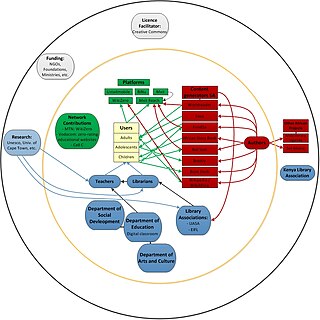
Mobile Literacy in South Africa refers to a range of informal education projects and initiatives that support the development of literacy and enable digital fluency while using mobile devices, especially mobile phones. Mobile literacy is also known by the abbreviation mLiteracy.

The 71st Flying Training Wing is a United States Air Force unit assigned to Air Education and Training Command. It is stationed at Vance Air Force Base, Oklahoma where has conducted pilot training for the Air Force and allied nations since 1972. It also is the host unit for Vance.
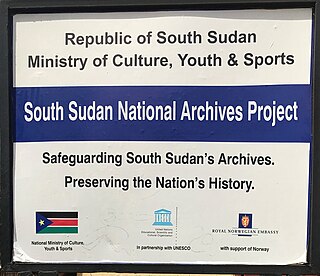
The National Archive of South Sudan is located in Juba, South Sudan. The collection consists of tens of thousands of Sudanese and Southern Sudanese government documents running from the early 1900s, through the independence of Sudan in 1956 and Sudan's First (1955–1972) and Second (1983–2005) civil wars, to the late 1990s. The archives are run by the Ministry of Culture, Youth and Sports in Juba, South Sudan.
Science and technology in Uganda examines government efforts to develop a national innovation system and the impact of these policies.

Photography in Sudan refers to both historical as well as to contemporary photographs taken in the cultural history of today's Republic of the Sudan. This includes the former territory of present-day South Sudan, as well as what was once Anglo-Egyptian Sudan, and some of the oldest photographs from the 1860s, taken during the Turkish-Egyptian rule (Turkiyya). As in other countries, the growing importance of photography for mass media like newspapers, as well as for amateur photographers has led to a wider photographic documentation and use of photographs in Sudan during the 20th century and beyond. In the 21st century, photography in Sudan has undergone important changes, mainly due to digital photography and distribution through social media and the Internet.
Cinema of Sudan refers to both the history and present of the making or screening of films in cinemas or film festivals, as well as to the persons involved in this form of audiovisual culture of the Sudan and its history from the late nineteenth century onwards. It began with cinematography during the British colonial presence in 1897 and developed along with advances in film technology during the twentieth century.
Cinema is a newly developing industry in South Sudan.
careFIJI is a mobile software application developed by the Government of Fiji to assist the Ministry of Health and Medical Services in combating the ongoing COVID-19 pandemic in Fiji. The mobile app is available on Google Play and the App Store.

The International Campaign to Save the Monuments of Nubia was the relocation of 22 monuments in Lower Nubia, in Southern Egypt and northern Sudan, between 1960 and 1980. The success of the project, in particular the creation of a coalition of 50 countries behind the project, led to the creation of the World Heritage Convention in 1972, and thus to the modern system of World Heritage Sites.














